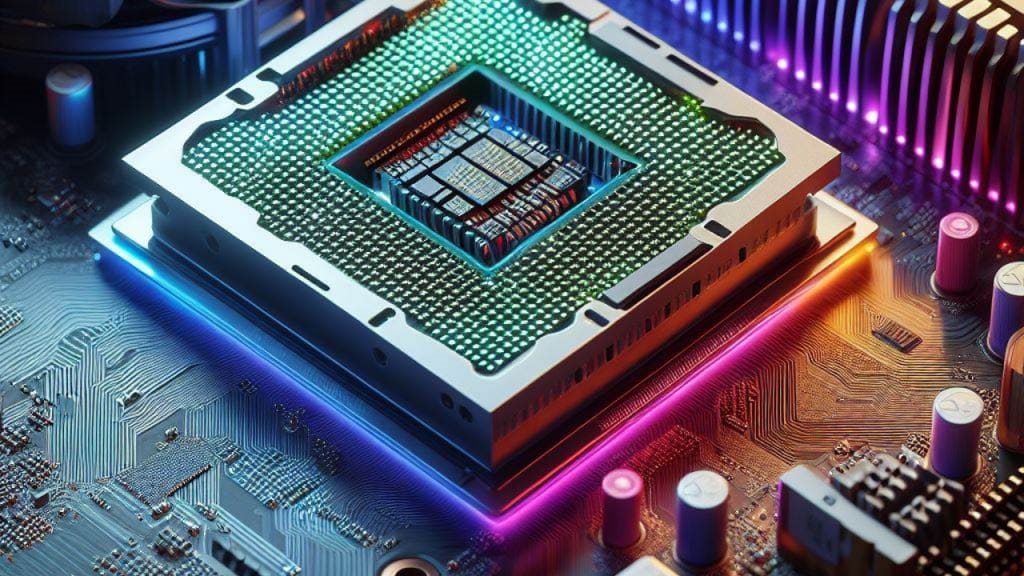Quantum processor
The quantum processor represents one of the most promising frontiers of computer technology.

The quantum processor represents one of the most promising frontiers of computer technology. Based on the principles of quantum mechanics, it uses qubits instead of traditional bits. Qubits can exist in multiple states at once thanks to superposition and can be entangled through entanglement. These properties allow quantum processors to perform complex calculations in extremely short times compared to classical computers.
The quantum processor in the future
In the future, as also said on the site Wiki Tech, quantum processors could revolutionize several industries. In the field of cryptography, for example, they could make many of the current security systems obsolete, as they are capable of deciphering complex codes in a few seconds. This would lead to the development of new data protection methods. Even in the field of scientific research, quantum processors could accelerate the simulation of molecular systems, allowing the discovery of new drugs and advanced materials.
Optimization of complex problems could benefit greatly from quantum processors. Applications such as logistics, air traffic and energy resource management could be improved by the ability to process large amounts of data simultaneously. Furthermore, artificial intelligence could make a significant qualitative leap, as quantum processors would be able to handle much more complex and efficient learning algorithms.
However, the road to the practical implementation of these processors is still long. Currently, qubit stability and error correction are among the main challenges. It is expected that in the coming decades, thanks to continuous advances in research and technological development, quantum processors will become more reliable and accessible.
Quantum PC Case: What It Could Be
The PC case that will house a quantum processor will have to be radically different from traditional cases. The complexity and sensitivity of quantum technology requires an extremely controlled environment. First of all, the case will have to be designed to maintain a temperature close to absolute zero, as the qubits must operate at extremely low temperatures to maintain their coherence and reduce errors. Therefore, the case will be equipped with an advanced cryogenic cooling system, capable of reaching and maintaining temperatures close to a few millikelvins.
This cooling system in the quantum PC case will likely be based on technologies such as dilution coolers, which are already used in quantum computer prototypes today. Advanced electromagnetic shielding will also be needed to protect the qubits from external interference that could disturb their quantum state. Such shielding could include superconducting materials or multi-layer structures that isolate the quantum processor from any electromagnetic noise.
The case will also have to house a sophisticated control and monitoring system. This system will be responsible for managing internal environmental parameters and continuously verifying the operating conditions of the qubits. Precision sensors will detect any changes in temperature, magnetic fields or other disturbances that could affect quantum operations, triggering immediate corrective measures.
The case structure will be built with advanced materials, such as light and resistant metal alloys, capable of guaranteeing both robustness and thermal insulation. Inside, the layout will be designed to minimize vibrations and ensure the mechanical stability of sensitive components. A vacuum or very low pressure environment may also be required to further reduce the chances of interference.
For user interface and access, the case will include specialized connection ports to communicate with classic computing systems and input/output devices. These connectors will need to be designed to handle quantum data transmission without introducing significant errors.
The future of quantum processors
The road to the practical implementation of these processors is still long. Currently, qubit stability and error correction are among the main challenges. It is expected that in the coming decades, thanks to continuous advances in research and technological development, quantum processors will become more reliable and accessible.
The future of quantum processors promises to radically transform our computing capacity, opening up new possibilities in many fields of science and technology. With potential yet to be explored, they represent one of the most anticipated and revolutionary innovations of our time.
About the Creator
WikiTech
Wiki Tech offers news, reviews and guides on technology and innovation. Software reviews and industry trends with clear, up-to-date insights. We stay abreast of digital evolution to better inform you.
Enjoyed the story? Support the Creator.
Subscribe for free to receive all their stories in your feed. You could also pledge your support or give them a one-off tip, letting them know you appreciate their work.






Comments
There are no comments for this story
Be the first to respond and start the conversation.